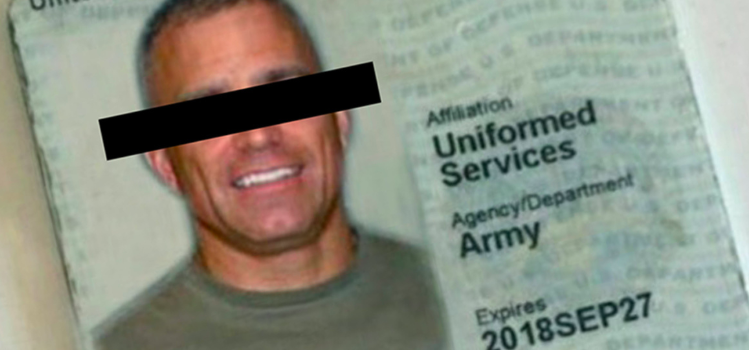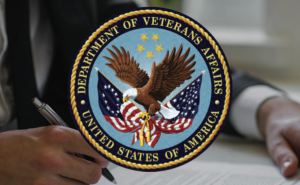“Oh, beautiful friend,” begins an email from Nigeria, “I am in need of your help to move the sum of 30,987,544.36 out of my country but, alas, I cannot.” This email scam is old as email itself but is a spin on an even older scam, one that involves a man claiming to be a political prisoner during the Spanish-American War. Apparently, he’s hidden money away and is desperate to get it before the Spanish find it. Thankfully, through friends, he’s found you, a person of considerable trust. Now if you could just send him some money…
Well, the Spanish-prisoner-turned-Nigerian-prince has transformed yet again. This time, he’s turned into an American soldier… In Nigeria.
This letter con is actually even older than the Spanish-American War. The resurgence of the scam in 1898 was just a play on American anti-Spanish sentiment. In the 1700s, it was a different kind of Spanish prisoner who needed money to smuggle a wealthy family member into or out of a country. Then there’s the 1800s’ “Frenchman in Jerusalem,” or the 1920s’ “German Winemaker Investment.”
These are all different flavors of the same scam. You pay a comparatively small amount up front for the promise of a great windfall down the road, but nothing ever comes. Like all of these schemes, the fraudster is taking advantage of a political situation, economic frustrations, or the recipient’s general lack of knowledge about the subject or region.
He’s back.
This is the new Nigerian Prince.
Now, schemers are looking to take advantage of all three of those weaknesses. Americans love their military, but don’t always know where the U.S. military is operating — sometimes because it’s undisclosed and sometimes because Americans don’t really care where U.S. combat troops are deployed (before anyone gets indignant about this statement, ask yourself if you really know).
In reality, U.S. troops are deployed to anywhere between 177 and 195 countries in the world. And those are just the missions with 50 or more troops deployed. Meanwhile, as the U.S. economy has been more or less booming for the last 9 years, it really hasn’t translated into an increase in wages or quality of life for most middle-class and blue-collar Americans. And Americans, even American students, tend to be bad at geography.
This is not a trick. That’s really where Nigeria is.
But the latest scam isn’t coming from Nigeria. It’s coming from Syria. Well… it claims it’s coming from Syria.
“How are you doing my friend, great I guess! Now I know this mail will definitely come to you as a huge surprise, but please kindly take your time to go through it carefully as the decision you make will probably go a long way to determine my future and continued existence. First, let me introduce myself. I am Capt. Christopher Townsend, assigned to 2nd Battalion, 3rd Marine Regiment, 3rd Marine Division, 3rd Marine Expeditionary Force in Syria.”
For civilians who may be susceptible to this scam, I hope you tried to show this to a military friend because there are many glaring irregularities between this first paragraph and the photo of the ID sent along with it
Blurring the edges of an ID photo is something no one does ever.
Aside from a clearly photoshopped ID photo, the CAC card above was taken from a U.S. Army Sergeant Major, not a captain of Marines. Secondly, unless that captain was also a journalist, it’s unlikely that he would abbreviate his rank using the Associated Press style. Military personnel have many different ways of abbreviating ranks, but the Marines don’t use a period. Finally, no sergeant major or captain I have ever met talks or writes like that.
And a Marine isn’t likely to make that kind of mistake, even in an informal email. Are the Marines in Syria really with the 2nd Battalion, 3rd Marine Regiment? That doesn’t matter.
It matters, but not for the purposes of deciding to send them money.
(U.S. Marine Corps photo by Sgt. Donald Holbert)
“Some money in various currencies was discovered and concealed in barrels with piles of weapons and ammunition at a location near one of President Assad’s old Presidential Palaces during a rescue operation and it was agreed by all party present that the money be shared amongst us.”
Do dictators just leave money around, hiding in barrels with arms caches? My guess is that President Assad probably keeps his money in a bank, like most of the world. Keeping illicit cash in barrels laying around one of your many houses is a surefire way to lose it. Besides, rich dictators don’t have to horde cash — they don’t care if people know they’re stealing.
The Syrian Presidential Palaces are located in Damascus and if U.S. Marines are/were in Damascus, even on a rescue mission, we probably would have heard about it by now. Most importantly, Assad never lived there.
It would not be this clean after a visit from United States Marines.
(Flickr/Jacobdugo)
Finally, this is something more akin to the plot of Three Kings than something U.S. Marines would really do. The Marine Corps is renowned for its discipline and adherence to its core values on the battlefield. If they came across a cache of $15 million dollars in a Presidential palace, you’d see Marines posing with it and their small arms on Instagram right before you read about it in the New York Times. Then, they’d turn it in.
If you ever have a question about something fishy sent from someone claiming to be a U.S. troop, just ask a veteran. We all need a good laugh.
This article originally appeared on We Are The Mighty
More From We Are The Mighty
5 Reasons Why Troops Stick Together After the Military
4 Reasons Why Showering On Deployment is Disgusting
7 of the Greatest Songs Every Veteran Knows
6 Things You’d Take Back Before Leaving the Military
6 Dumb Things Veterans Lie About on the Internet
Follow We Are The Mighty on Twitter








